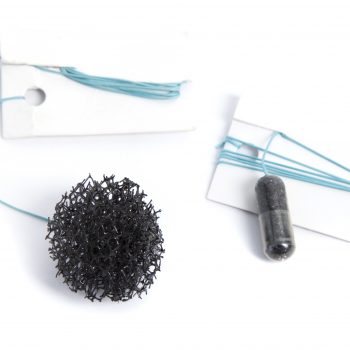Detecting cancer with a ‘pill on a string’
Early detection of this type of cancer requires a referral for an endoscopy, where a camera is fed through your mouth to your stomach, which can be uncomfortable for some people and is expensive for the health service.
However, researchers in Cambridge have come up with a new way to collect cells from the oesophagus to test for cancer, which is easier and less uncomfortable than an endoscopy and importantly can be performed in the GP surgery. The device, known as the cytosponge or ‘pill on a string’, only takes a few minutes to use and can be done outside of a hospital setting.
Patients are asked to swallow a small capsule (about the size of a multivitamin pill) which is attached to a string. When it gets to the stomach the capsule disintegrates and releases a small sponge. The sponge is then pulled back using the string, collecting cells as it comes up the oesophagus which can be sent off for testing. The team have also devised the laboratory test to make the testing as fast and accurate as possible.
The cytosponge is now in its third stage of trials at GP practices and results are expected within a year. Early tests have shown them to be effective at detecting Barrett’s oesophagus. If trials continue to show positive results, the device could provide more patients to be tested for the possibility that they have Barrett’s oesophagus.
This means testing can take place in the community, identifying those who have suspected Barrett’s oesophagus faster and reducing the number of those who require an endoscopy. The cytosponge could revolutionise testing and save the NHS money.
- This research was supported and funded by the Medical Research Council, Cancer Research UK and the National Institute for Health Research.
Find out the journey of the timeline from an idea to now a a new diagnostic tool to detect Barrett’s oesophagus.



